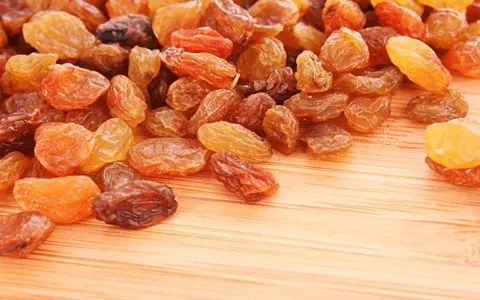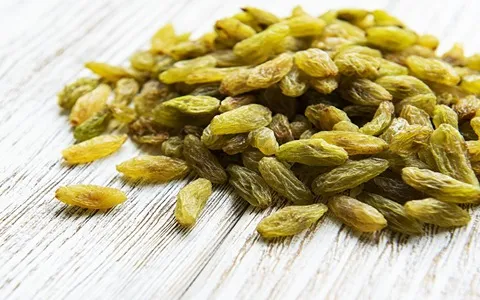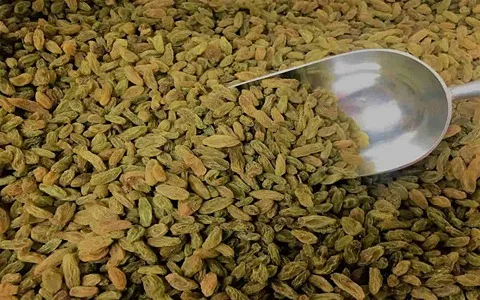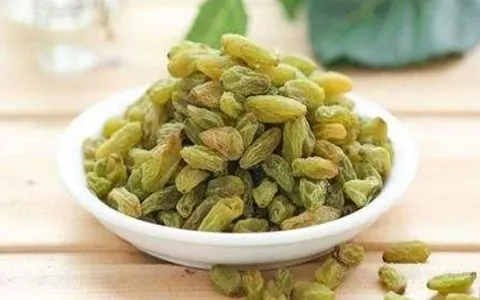Raisins, those tiny wrinkled gems bursting with sweetness and flavor, have captured the hearts and taste buds of people around the world for centuries.
Whether enjoyed as a snack, a baking ingredient, or a topping for cereals and salads, raisins are a versatile and delicious addition to any kitchen.
But beyond their culinary appeal, raisins also offer a host of health benefits that make them a smart choice for those looking to boost their nutrient intake.
In this comprehensive guide, we delve into the world of raisins, unraveling their nutritional profile, exploring their health benefits, and discovering the culinary magic they bring to the table.

The Origin and Production of Raisins
Raisins are dried grapes, with a leathery texture and a sweet flavor that intensifies as the water content diminishes during the drying process.
While the exact origins of raisin production are uncertain, it is believed that raisins have been made for over 3,000 years.
The technique of drying grapes into raisins is thought to have originated in the Mediterranean region and was later spread to other parts of the world by trade routes.
Today, the leading producers of raisins include countries such as the United States, Turkey, Greece, and Iran.
California, in particular, is renowned for its high-quality raisin production, with the San Joaquin Valley being one of the largest grape-growing regions in the world.
Raisins are typically made from seedless grape varieties such as Thompson Seedless, Flame Seedless, and Muscat, which are well-suited for drying due to their high sugar content and thin skin.

Nutritional Profile of Raisins
Raisins may be small in size, but they are packed with essential nutrients that make them a valuable addition to a healthy diet.
Here is a breakdown of the nutritional profile of raisins per 100 grams:
- Calories: 299
- Carbohydrates: 79g
- Sugars: 59g
- Fiber: 3.7g
- Protein: 3.1g
- Fat: 0.5g
- Vitamin C: 2.3mg
- Vitamin K: 3.5mcg
- Iron: 1.9mg
- Potassium: 749mg
Raisins are a rich source of natural sugars, primarily in the form of glucose and fructose, which provide a quick energy boost.
The high fiber content in raisins promotes digestive health and helps regulate blood sugar levels by slowing down the absorption of sugars into the bloodstream.
Additionally, raisins are packed with antioxidants, such as resveratrol and flavonoids, which have been linked to various health benefits, including reduced inflammation and improved heart health.

Health Benefits of Raisins
The health benefits of raisins extend beyond their delicious taste, with numerous studies highlighting their potential to improve overall well-being.
Here are some of the key health benefits associated with consuming raisins:
Heart Health**: Raisins are a heart-healthy snack due to their high antioxidant content, which helps reduce inflammation and oxidative stress in the body.
The fiber in raisins can help lower cholesterol levels, while potassium supports healthy blood pressure.
Digestive Health**: The fiber in raisins promotes digestive regularity by adding bulk to stool and supporting the growth of beneficial gut bacteria.
This can help prevent constipation and support a healthy digestive system.
Bone Health**: Raisins are a good source of calcium and boron, both of which are essential for maintaining strong and healthy bones.
Regular consumption of raisins may help reduce the risk of osteoporosis and bone fractures.

Incorporating Raisins into Your Diet
Raisins are a versatile ingredient that can be used in a wide range of sweet and savory dishes to add flavor, sweetness, and texture.
Here are some creative ways to incorporate raisins into your diet:
1. **Trail Mix**: Create your own homemade trail mix by combining raisins with nuts, seeds, and dark chocolate chips for a nutritious and energizing snack on the go.
2. **Baking**: Add raisins to cookies, muffins, bread, and other baked goods for a sweet and chewy texture.
Raisins pair well with cinnamon, nuts, and oats in baking recipes.
